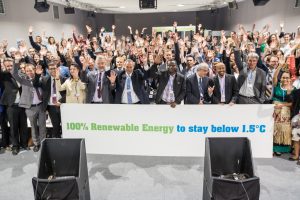The future of distributed renewable energy (DRE) is certain in Nigeria’s power market. Propelled by private investments, DREs are looking ready to play game in Nigeria’s energy market.
Until 18 years ago, NITEL, an enormously resourced telecommunication outfit of the Nigerian government held sway as the principal telecommunications company in Nigeria.
Owned by the government of Nigeria, NITEL ran as a monopoly in Nigeria’s telecommunication market, and held sway until 1999 when the arrival of the mobile telephone shattered its hold on the telecommunication market.
As at the time it lost its market hold, NITEL was said to have just about 450,000 subscriber lines for a population of 120 million Nigerians, and even with its market monopoly, offered services that were below standards.
Such was the narratives on NITEL that in contemporary Nigeria, it is often referred to as an ‘over pampered market giant’ that lost its privileges when competition came calling.
Today, the 11 electricity distribution companies (Discos) in Nigeria’s privatised power market are almost occupying the same status NITEL had some 18 years back, and also exhibiting similar character.
Their positions have come with similar privileges as NITEL – a huge market protected by legally ceded distribution zones; zero market competition amongst each other or third parties; and a hungry consumer.
But with these privileges, come the responsibilities of efficient service delivery; proactive network expansion; and creative business models, which they have frequently shirked.
Like NITEL, shirking responsibilities have come almost so easy to Nigeria’s 11 Discos who have buried their heads in the sands of the monopoly they enjoy.
They have frequently showed off the self-importance to the sector which they enjoy, and which no one is in denial of.
However, recent developments in the DRE market across the globe and specifically Nigeria have indicated that there could be hope for Nigerian electricity consumers who have lived with the pains of the Discos’ inefficiencies.
As observed, recent market trends showed that these monopolistic privileges enjoyed by the Discos may soon be challenged by offerings to consumers by the DRE sector, and unless they quickly adjust, to learn from the NITEL experience, some of the Discos may soon be caught napping.
In basic microeconomics, there are two very important fundamentals that have to always interact to achieve an economic equilibrium in a capitalist market or economy – demand and supply, with the demand representing the consumers and supply, the service providers.
In the context of this, millions of Nigerian electricity consumers are constantly pulling the Discos for improved service delivery. Unfortunately, the Discos have consistently fallen short of meeting their demands, and have from records remained reluctant to do more than they are doing now. DRE operators in Nigeria have recognised this and are latching on them to create market-based solutions that would fill the gap for consumers.
As a result of the poor showings of the Discos, DRE operators and investors are increasingly warming up to fill in the gap created by the ‘bigmanism’ exhibited of the Discos, and they are fast at it.
Already, Nigeria’s power minister, Mr. Babatunde Fashola, reported in May that about 2.23 million Nigerians have switched to using solar photovoltaic solutions to generate electricity they use in their homes and offices, this number is reportedly bound to increase in leaps.
Helped by new revolutionary regulations like the mini grid regulation that was recently passed by NERC, more Nigerians may soon call the bluff of the country’s erratic grid and indeed the Discos for off-grid renewable energy solutions, and there are records to buttress this.
For example, on July 13, indigenous DRE firm, Green Village Energy (GVE) put to test the efficacy of the NERC’s mini grid law to invest N85 million in the construction of a 50kW solar mini grid system that would provide steady electricity for 220 homes in Akpabom, Akwa Ibom state.
The solar system which was done on a PPP arrangement with the state government will at once take out from the grid and indeed the relevant Discos’ reach, income from 220 homes.
Additionally, the government has decided to electrify about 37 of its universities and teaching hospitals with solar-based mini grid system. This will also ensure that connections to and revenues due to the relevant Discos would no longer come to them.
Considering these developments and many others, we are of the view that as more Nigerians begin to identify and understand the potentials and weaknesses of renewables, the future of DRE is certain in Nigeria’s power market, and that unless taken seriously, the mistakes of defunct NITEL may not be foreign to the 11 electricity Discos in a matter of time.





